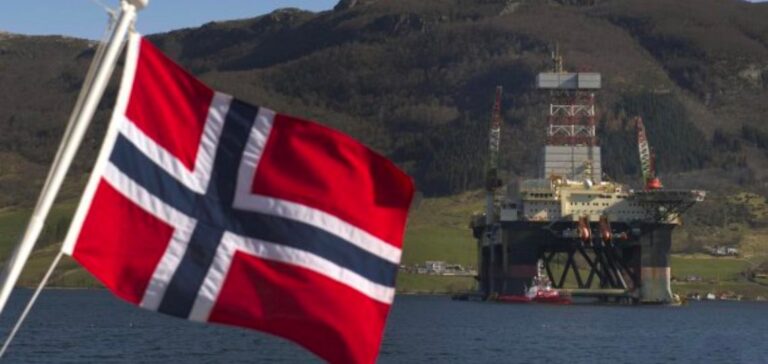After disturbing drone sightings and alleged “sabotage” of the Nord Stream pipelines, Norway, now Europe’s main gas supplier, is stepping up security around its oil facilities considered a potential vulnerable target.
As spectacular as they are, the gas leaks, preceded by explosions, on Nord Stream 1 and 2, which link Germany and Russia under the Baltic Sea, have no impact on the supply of Europe: the two pipelines were not in service because of the war in Ukraine.
But sabotage of this kind on the Norwegian installations – the track widely favored by European leaders – would have catastrophic effects for the continent, which is already struggling to cover its energy needs as winter approaches.
As a result of Moscow’s reduction in gas deliveries in retaliation for the sanctions imposed by the Europeans after the Russian offensive in Ukraine, Norway has become the main gas supplier to Europe, to which it is linked by a vast network of pipelines.
The Scandinavian country is currently producing at full capacity: according to official forecasts, its gas exports could reach a record level of 122 billion m3 this year. This compares with some 150 billion cubic meters of gas per year supplied by Russia to the European Union before the war.
Faced with these high stakes, the Norwegian police announced on Wednesday the extension and strengthening of security measures already in place in the oil sector to reduce its vulnerability.
“The situation is being taken very seriously and several measures have already been put in place to ensure the best possible security,” said a police official, Tone Vangen, without providing details for confidentiality reasons.
The day before, the Minister of Oil and Energy, Terje Aasland, had made an announcement along the same lines, referring to “reports of increased drone activity” near oil platforms.
Equinor, the national energy giant, has indeed reported flights of “unidentified drones in the vicinity of certain facilities”, a phenomenon that had not been observed until now.
“We are taking this very seriously and reporting it to the police,” a spokesman for the group, Eskil Eriksen, told AFP, without providing details.
Gas pipelines, the weak link
Echoing the authorities, the country’s oil companies say they have increased vigilance around their offshore and onshore platforms, bases and facilities.
Stretching for thousands of kilometers, sometimes at great depths, gas pipelines are a weak link in the energy supply chain, which is vital for Europe.
“They are vulnerable, open to all winds,” says Tor Ivar Strømmen, a researcher at the Royal Norwegian Naval Academy, who would like to see a series of measures ranging from an inspection of the pipes to ensure that explosives have not been placed in them to careful monitoring of shipping in these waters.
The Prime Minister, Jonas Gahr Støre, told the NTB agency on Wednesday that there was “no specific threat against Norway”.
But the professor and director of the Norwegian Institute for Defence Studies, Sven Holtsmark, considers it “probable” that Moscow, often accused of using energy weapons, is trying to sabotage Norwegian infrastructure.
“Before, the idea of Russia attacking Norwegian facilities would have seemed completely absurd, but we can no longer afford to rule out this possibility” to begin the support the Europeans are giving to Ukraine, he told AFP.
“The toolbox (of Russian President) Vladimir Putin is emptying and the war in Ukraine does not seem to stop anytime soon: for me, it is therefore logical that Putin decides the sabotage of Norwegian facilities, especially since it would be difficult to prove that it is Russia that is behind,” says the expert.





















